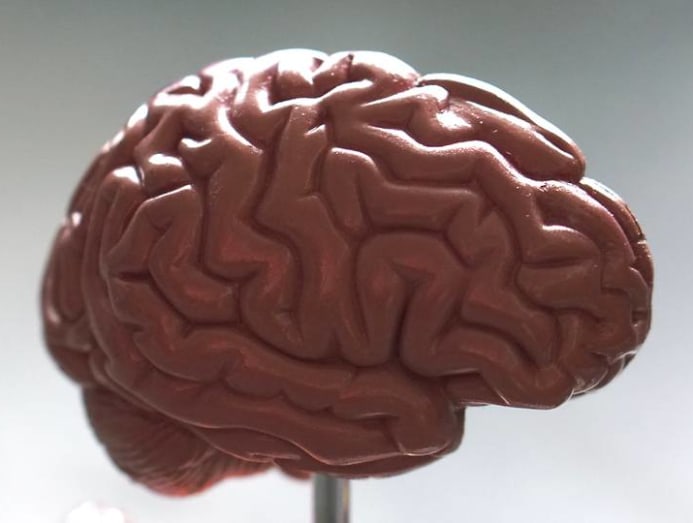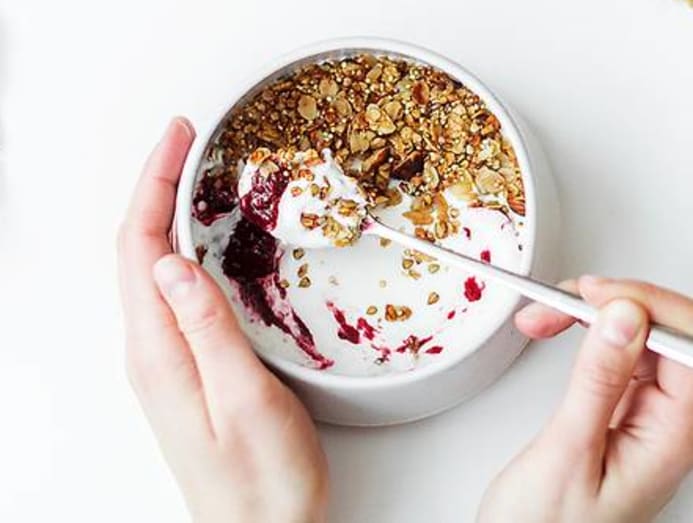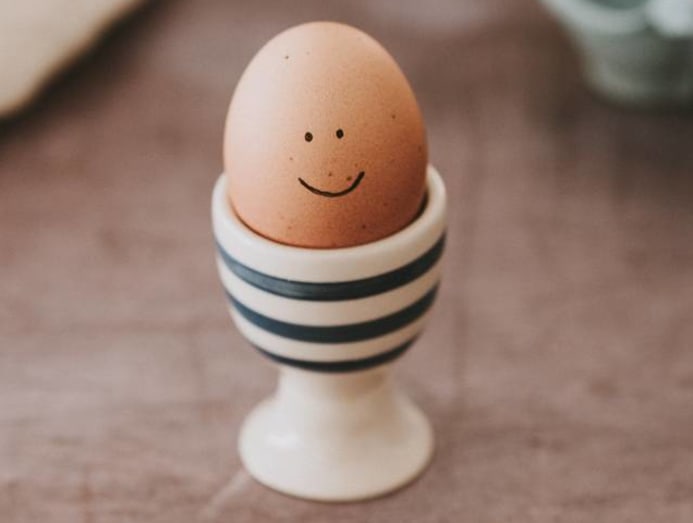Anxious? Depressed? Indigestion? Experts say kimchi or yoghurt can help
The latest approach to improving your mood and memory – including how some doctors are approaching autism – starts with paying attention to your gut.

Why foods such as kimchi and yoghurt are your gut's and brain's best friends. (Photo: Pixabay)
The expression “butterflies in the stomach” is more than just that unsettling feeling in the tummy before you’re up for a presentation – or pretty much anything that gives you anxiety.
And ever wondered why you'd feel hungry from scrolling through food pictures on Instagram when you'd just eaten an hour ago?
For a while now, experts have more than a gut feeling that there is a strong connection between the brain and the digestive system.
For starters, there are about 100 billion neurons in the brain that control your every single action and emotion, wrote Professor Ruairi Robertson on Healthline, and who is currently researching on gut microbiome at the University of British Columbia.
READ: Is brunch making you fat? This pancake could be 300 calories without toppings
Outside of the brain, the gut is the only place in the body where you can find the largest number of neurons. “Interestingly, your gut contains 500 million neurons, which are connected to your brain through nerves in your nervous system,” he wrote.
And the exact location of this second “brain”?
“This so-called enteric nervous system (ENS) is made up of a network of two thin layers of more than a hundred million nerve cells lining the gastrointestinal tract from the oesophagus to the rectum,” said Dr Melvin Look, the director of PanAsia Surgery at Mount Elizabeth Hospital, Mount Elizabeth Novena Hospital and Parkway East Hospital.
READ: Will cutting 300 calories from your daily diet increase your lifespan?
“It is only recently that we are beginning to understand how the ENS mediates multiple signals to the brain from the gut and even the intestinal microbiota,” added Dr Look, who is also a consultant surgeon in gastrointestinal, laparoscopic and obesity surgery.
While this “brain” can’t help you remember your grocery list, split the bill or write poetry, “it communicates back and forth with our big brain – with profound results,” said Dr Jay Pasricha, the director of the Johns Hopkins Center for Neurogastroenterology.

“For decades, researchers and doctors thought that anxiety and depression contributed to these problems. But our studies and others show that it may also be the other way around,” said Dr Pasricha.
MOOD, MEMORY AND MENTAL HEALTH
Evidently, poor gut health can affect your mood and emotions through the gut-brain connection, said Dr Look.
“It can trigger or exacerbate anxiety and depression. It can also affect other psychiatric and neurologic disorders such as Alzheimer’s disease, Parkinson's disease, autism spectrum disorders and schizophrenia.”
Mood-wise, there’s also good reason to keep your gut happy for you to be happy.
Prof Robertson said in a TEDx Talk episode that most of our neurotransmitters “are produced in our gut, none more so than serotonin, nature’s antidepressant; 90 per cent of which is produced in our intestines and less than 10 per cent is produced in our brains”.
Furthermore, if your gastrointestinal system is irritated, scientists are finding evidence that it “may send signals to the central nervous system that trigger mood changes,” said Dr Pasricha.
“These new findings may explain why a higher-than-normal percentage of people with irritable bowel syndrome (IBS) and functional bowel problems develop depression and anxiety.
"That’s important because 30 per cent to 40 per cent of the population has functional bowel problems at some point.”
Cognitive decline could be another issue caused by your gut, a leaky one, that is, said Dr Look. A leaky gut is when the lining of the small intestine becomes damaged, causing undigested food particles, toxic waste products, bacteria, and in this case, pro-inflammatory mediators to "leak" through the intestines and flood the blood stream.
To date, experts aren't quite sure why a leaky gut occurs.
“This can cause neuro-inflammation in the brain that results in cognitive decline. The microbiota-gut-brain axis may be a novel therapeutic target to decelerate age-related decline,” said Dr Look.
TREATING AUTISM THROUGH THE GUT
The latest discovery is the confirmed association that the gut-brain link has with autism, according to research by RMIT scientists.
"We know the brain and gut share many of the same neurons and now for the first time, we've confirmed that they also share autism-related gene mutations," said Associate Professor Elisa Hill-Yardin from RMIT University’s School of Health and Biomedical Sciences.
READ: If you have a sweet tooth, you might be setting yourself up for a range of health risks
The research, published in Science Daily in May, noted that a gene mutation that affects neuron communication in the brain – and identified as a cause of autism – is also the cause of dysfunction in the gut.
"Up to 90 per cent of people with autism suffer from gut issues, which can have a significant impact on daily life for them and their families,” said Assoc Prof Hill-Yardin, the study’s chief investigator.
“Our findings suggest these gastrointestinal problems may stem from the same mutations in genes that are responsible for brain and behavioural issues in autism.”
Assoc Prof Hill-Yardin said that a promising research path is how gene mutations in the nervous system affect microbes in the gut.
"We know these microbes interact with the brain via the gut-brain axis, so could tweaking them improve mood and behaviour?
While this wouldn't reverse the gene mutation, we might be able to tone down its effects, and make a real difference in the quality of life for people with autism and their families."
TAKING CARE OF YOUR GUT
In his TEDx Talk, Prof Robertson mentioned that certain foods can drastically change the types of bacteria that reside in your intestines.
“We’ve shown that by feeding specific strains of bacteria, it can enhance memory, stress behaviour, and stress hormone levels in animals,” he said.
“And in addition to a number of other researchers worldwide, we’ve identified lists of foods that can act as probiotics, or foods that can stimulate the growth of healthy bacteria inside our intestines.”

Probiotics are typically found in fermented food and drinks such as yoghurt, kimchi, natto and sauerkraut. But just how much do you need?
“The recommended daily dosage is between 1 billion CFUs (colony forming units) and 10 billion CFUs for adults,” said Dr Look.
“But the type and diversity of the bacteria present is important, too. That is why doctors sometimes prescribe different brands of probiotics for different situations.”
READ: A possible weight loss strategy: Skip breakfast before exercise
Can you consume too much probiotics if you’re a fan of yoghurt and kimchi, or if you take too much probiotic supplements?
“It is rare to come across probiotic overdose but side effects of probiotics are possible even if you keep within the recommended dosage,” said Dr Look.
“Probiotic-containing foods also have a high content of natural amines produced during the fermentation of proteins. This can cause headaches by exciting the brain in some people.”

Probiotics aren’t the only good stuff for your gut, according to Prof Robertson on Healthline.
For instance, omega-3 fats from oily fish such as sardines and seafood including oysters are beneficial for the gut-brain link.
High-fibre whole grains, nuts, fruits and vegetables are good sources of prebiotics, which are food for the good bacteria in your gut to flourish. “Prebiotics can reduce stress hormone in humans,” said Prof Robertson.
Polyphenols, which also come from plant-based foods such as cocoa, green tea, coffee and olive oil, are another group of plant chemicals that “increase healthy gut bacteria and may improve cognition,” said Prof Robertson.
To help the neurotransmitter serotonin along, tryptophan-rich foods such as turkey, eggs and cheese are good options.
This amino acid, said Prof Robertson, can be converted into serotonin by your body to help regulate mood, improve memory and stave off depression.
Other than eating the right stuff, keeping your gut happy could also be about managing stress levels and keeping your emotions in check.
“There are specific functional gut disorders which are due to problems of gut-brain interaction that leads to impaired motility of the bowel or hypersensitivity to pain,” said Dr Look.
“An example of this is IBS, which is common among young adults. Besides treating the gut, we also frequently treat aggravating factors such as stress and anxiety.
"Even simple measures such as meditation and exercise can sometimes help.”





